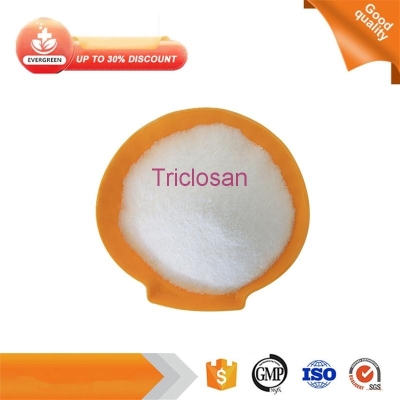China formally drafted the anti monopoly guide for intellectual property rights, and medicine was given special attention
-
Last Update: 2015-06-04
-
Source: Internet
-
Author: User
Search more information of high quality chemicals, good prices and reliable suppliers, visit
www.echemi.com
Source: economic reference daily / Lin Yuan 2015-06-04 China will fight against the "patent hooligan" behavior of technology intensive enterprises A reporter from the economic information daily learned Wednesday that the national development and Reform Commission's price supervision and inspection and Anti-monopoly Bureau had organized a preparatory meeting to officially launch the research and drafting of the guide on anti monopoly regulation of abuse of intellectual property rights (hereinafter referred to as the guide) Experts said that the drafting and promulgation of the guide will have a substantial impact on the exercise of intellectual property rights in the fields of information and communication, medicine and other fields, as well as the sale of products and services It is reported that the pharmaceutical industry has been given special attention The guide will detail the relevant provisions of the anti monopoly law in terms of monopoly agreements related to intellectual property rights, abuse of market dominance and concentration of business operators, especially in terms of which circumstances exemption can be claimed The reporter learned that technology intensive industries such as information and communication, medicine, medical equipment, automobile, agricultural machinery and seed industry are high incidence areas of monopoly behavior in the field of intellectual property The "IDC case" and "Qualcomm [Weibo] case" sponsored by the national development and Reform Commission, as well as the "Weibo" case sponsored by the State Administration of industry and commerce to Microsoft [Weibo] Anti monopoly investigations are all concerned with the abuse of intellectual property rights, and it has become a trend to implement stronger anti-monopoly law enforcement in these industries "Although patent rights have a huge role in promoting the prosperity and development of technology, if they are allowed to become a tool for the obligee to seize monopoly interests, then the so-called" patent cockroaches "or" patent hooligans "will run rampant in the world, and become a stumbling block for technological progress and industrial development At the same time, improper or excessive anti-monopoly law enforcement may also crack down on innovation and lead to insufficient research and development " An official from the price supervision bureau of the national development and Reform Commission pointed out that the key point of anti-monopoly law enforcement in the field of intellectual property is to keep the balance between intellectual property and anti-monopoly In April this year, the State Administration for Industry and Commerce promulgated the provisions on Prohibition of abusing intellectual property rights to exclude and restrict competition, stipulating non price monopoly agreements and abusing market dominant position Shi Jianzhong, a professor at China University of political science and law, pointed out that the guide, which was drafted under the leadership of the national development and Reform Commission, is expected to refine the price and non price monopoly agreements related to intellectual property rights, abuse of market dominant position, concentration of business operators and other three major monopoly behaviors, especially in which case, according to Article 15 of the anti monopoly law In order to reduce the discretionary space of law enforcement agencies and the compliance cost of enterprises, the article advocates exemption, which circumstances may be identified as having the "justification reason" required by Article 17 and gives specific guidance Based on the local experience, it is understood that in terms of working procedures, the next step of the national development and Reform Commission will entrust relevant parties to carry out targeted research and form a preliminary draft on this basis After that, the national development and Reform Commission will extensively solicit opinions from relevant parties, form a mature draft on the basis of full research and demonstration, and solicit public opinions according to legal procedures, which will be released by the Anti Monopoly Committee of the State Council after discussion and adoption As for how to draft the guide, Lu Yanchun, deputy director of the price supervision and inspection and Anti-monopoly Bureau of the national development and Reform Commission, said that we should deal with four relationships: the relationship based on local and advanced experience from the world, the relationship between rule certainty and system flexibility, the relationship between problem orientation and moderate forward-looking, the relationship between comprehensive improvement of rules and selection, etc In view of how to deal with the relationship between being based on the mainland and learning from the world's advanced experience, Su Hua, deputy researcher of the American Institute of Social Sciences, said that the anti-monopoly law of the United States and Europe has been implemented for many years When regulating the abuse of intellectual property rights to limit competition, the reasonable principles applied by the United States and the prohibition and exemption mode applied by the European Union have been constantly revised and developed in practice, which is worth China's reference For example, in China, Qualcomm's anti-monopoly investigation ended with a RMB 6.088 billion fine issued by the national development and Reform Commission and a package of rectification measures implemented by Qualcomm However, Qualcomm is still facing anti-monopoly investigations from EU, US, South Korea and other countries and regions In recent years, the EU has gradually increased its anti-monopoly scrutiny of high-tech companies such as Qualcomm, apple and Google In a regulatory filing in April, Qualcomm said the European Commission informed it last October that it was investigating how Qualcomm sold and promoted chip products, as well as discounts and other financial incentives offered to customers In May, the European Commission sent a questionnaire to Qualcomm's competitors asking about the impact of Qualcomm's business practices and patent licensing practices on these companies On April 28, South Korea's Fair Trade Commission disclosed that it was investigating Oracle Inc to find out whether it was anti competitive to bundle new software in maintenance service contracts South Korean regulators point out that Oracle also requires customers to pay maintenance fees for all Oracle Software in use, rather than letting customers choose which software they want to receive maintenance services for At the same time, antitrust private litigation is also worthy of attention On May 7, the U.S high court of California overturned the decision of the lower court to dismiss the lawsuit, and restarted the group proceedings on the reverse payment agreement reached by Bayer, a German pharmaceutical giant, on its cipro antibiotic The agreement agreed that Bayer would pay $398 million to Barr laboratories, which agreed to postpone the introduction of cipro generic drugs According to a judgment of the Supreme Court of the United States in 2013, the reverse payment agreement between the original research drug and the generic drug companies to settle the patent litigation may violate the antitrust law The court said the U.S consumer group, the plaintiff, had to prove that the reverse payment agreement was not just to avoid the cost of patent litigation between Bayer and Barr, but to delay the entry of generic drugs into the market The reporter learned that the above-mentioned "patent hooligan" behavior of multinational enterprises has some similar situations in China, for example, in terms of abuse of patent rights, there have been reports of patent drug pricing and suspected monopoly behavior of patent claiming entities in the telecommunications industry in recent years In this regard, the relevant departments are carrying out research.
This article is an English version of an article which is originally in the Chinese language on echemi.com and is provided for information purposes only.
This website makes no representation or warranty of any kind, either expressed or implied, as to the accuracy, completeness ownership or reliability of
the article or any translations thereof. If you have any concerns or complaints relating to the article, please send an email, providing a detailed
description of the concern or complaint, to
service@echemi.com. A staff member will contact you within 5 working days. Once verified, infringing content
will be removed immediately.







